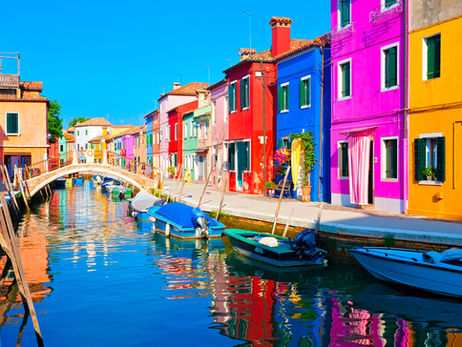Hurzeler's Brighton lost 1-0 to the Premier League leaders thanks to Bukayo Saka's early strike - which for 87 minutes was Arsenal's only shot on target of the game.
At a furious Amex Stadium, the home fans booed the officials and the away team over time-wasting, and Hurzeler felt Arsenal went too far.
Brighton 0-1 Arsenal - Match report and highlightsAs it happened | Teams | Match statsLive Premier League table | Watch FREE PL highlightsGot Sky? Watch Premier League games LIVE on your phone📱Not got Sky? Get Sky Sports or stream with no contract on NOW 📺
In his post-match press conference, Hurzeler complained that:
Only one team tried to play footballArsenal make their own rules during matchesHe would never tell his team to play like thatArsenal keeper David Raya went down 'injured' three times with no punishmentThe league needs to find a way to punish itNobody - apart from Arsenal fans - enjoyed the gameSupporters deserve better
In response to Hurzeler's strong criticisms, Arsenal manager Mikel Arteta said: "What a surprise!
"You just go back to the previous games and you'll find a lot of comments like this always.
"I love my players. That's the highlight. I love my players, we love our players and I love the way we compete.
"I think they [critics] love our players. I mean, every time they talk about our players, I think they are the most loved ones in the country."
Asked if he cares about what other managers think, Arteta replied: "Care? Yeah. Depends. On the comments. And the purpose of that."
See below for everything Fabian Hurzeler said in an explosive press conference about Arsenal's style of play and the way Premier League football is going:
His thoughts on the game...
Hurzeler: "I think statistics never lie. We conceded one shot on the goal, we created a lot of chances, we weren't that effective. Also in the final third we could have been more clinical, more calm, we could have made better decisions.
"We could have even created more chances, but overall, like you said, in the end we lost, so we are all disappointed regarding the performance.
"I love the effort from my boys, I loved how they played football. I think there was only one team who tried to play football today and therefore I'm proud of how they did it.
"We have to keep working on the details, we have to keep improving the small margins in the final third to create more chances, but that's our job, our responsibility, and we will keep working."
On David Raya going down on three separate occasions during the game
Hurzeler: "I ask one question, did you see in the Premier League game a goalkeeper going down three times? No? So I think we shouldn't waste too many words about that tonight. We should focus on us, we should focus on our performance. We can't control these kinds of things.
"I think therefore the Premier League has to find the rule and it's not my business. I made my point before the game and I stick to it, in the end we are football coaches, so no other football coach to manage the game, to help the team to win, and therefore the focus is on it."
How difficult it is to generate rhythm vs Arsenal
Hurzeler: "Very difficult, very difficult, but we tried it, we tried it hard. We tried to keep the ball moving, we tried to keep creating chances, and in the end I think these kinds of opponents you can only punish by winning against them.
"So today I have no arguments on my side, if I had a 2-1 win, a deserved 2-1 win, I could speak differently. So therefore we need to find a way to punish it, we need to find a way to find solutions against these kinds of teams and that's our responsibility, so there we have to keep working.
"Complaining doesn't help, so that's why focus is on us."
'I will never be a manager who plays like that'
Hurzeler: "There are different kinds of winning, so if they win the Premier League, no one will ask how they win the Premier League. I think you can really feel that they do everything now to win this game and in the end it's about the rules.
"If the Premier League, if the referee allows everything then it's difficult, then they make their own rules. At the moment I have the feeling Arsenal are doing their own rules, no matter how they are playing. That's why I think it's difficult to judge that.
"Overall, like I said, I will never be that kind of manager who tries to win in that way, I want to do well, I want my players to keep improving and keep playing football on the pitch and in the end, of course, every team will manage and waste time, but I think there has to be a limit and the limit has to be set by the Premier League, the limit has to be set by the referees, at the moment they just can do what they want."
'Did anyone enjoy that? No chance.'
Hurzeler: "Everyone here in the room, did you really enjoy this football game? I'm sure maybe one raises his arm because he's a big Arsenal fan, but besides that, no chance.
"So, that's why, again, it's just a repetition, we waste too much time talking about Arsenal and their game.
"It's really focusing on us, focusing on the positive things, focusing on the effort my team gave today and they deserved more, but again, we didn't get the result we deserved, so we have to keep working harder to punish them the next time."
Is it bad if Arsenal win the league like that?
Hurzeler: "Then they are champions, but I think it's always the way we just spoke about, the way of winning, which kind of way you are choosing. And if they win, I said it: no one will ask how they win, then they deserve to win it,
"But in the end we have to make the limits, or the Premier League has to make the limits. Where will this go in the future? That's my question, where will this go?
"Like, at one point, one game you play 60 minutes, and then when you play against Arsenal only 50 minutes, then it's 10 minutes difference, so is this for what the supporters are paying for? Do you get my point?"
Is it the referee's fault?
Hurzeler: "It's difficult, I said it to him: [referee Chris Kavanagh]: it's difficult for him, so I won't complain about the referee. Do you want to send off the goalkeeper with two yellow cards for wasting time? This will never happen, so what should he do?
"That's the thing, that's why I think you need rules, you need limits, because that's also what he admits to me at half-time. I didn't talk even about the penalty we might receive before the half-time, we just talked about how can you reduce the time of waste, and he says it's even difficult for him.
"So that's why what I said is making clear rules and I think that's responsibility from the Premier League, because then you can protect the referee.
"In the end, you can't go on the referee because of that, like, they just try to make their job the best they can do, but they have to stick to some things and I think the Premier League definitely have to help them more."
Analysis: Were Hurzeler's complaints justified - or a deflection tactic?
Sky Sports' Nick Wright at the Amex Stadium:
Fabian Hurzeler's comments will dominate the fallout to the game. He had made a point of raising the time-wasting issue in his pre-match press conference so it was no surprise to hear him return to the subject after a fractious evening which ended in defeat for his side.
His frustration was justified, at least to some extent. Having taken an early lead, Arsenal were clearly eager to disrupt the flow of the game, provoking the ire of the home fans as well as the manager, who spent much of the night remonstrating with the fourth official.
This was an ugly encounter. Its stop-start nature certainly suited the visitors better than Brighton. But, against an Arsenal side clearly out-of-sorts, Hurzeler might also look at his own side's shortcomings. They had more than enough possession to hurt Arsenal but couldn't.
Their 11 shots were worth just 0.8 expected goals, according to Opta, and for all their dominance of the ball and territory, it was telling that Raya didn't have a save to make after the 63rd minute, when Mats Wieffer headed directly at him.
Hurzeler has succeeded in shaping the narrative in the wake of the game. But his complaints should be of little concern to the Arsenal fans who sang 'we're going to win the league' in the away end after the final whistle. This ugly victory was one to savour for them.








































